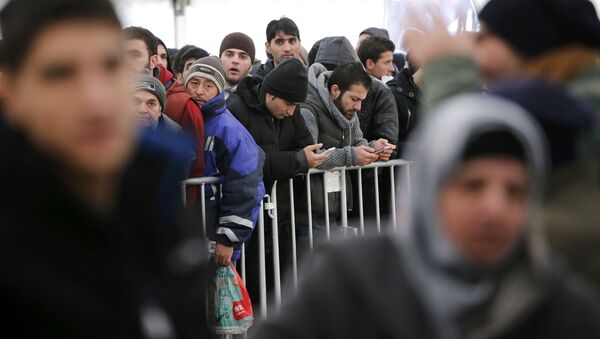Germany is expected to spend almost 50 billion euros on refugees over the course of the year, German magazine Spiegel Online wrote, referring to a new study by the Cologne Institute for Economic Research.
The findings of the new study confirm previous forecasts of the Kiel Institute for the World Economy, although the Kiel Institute's researchers published even higher cost estimates related to the migration crisis.
According to the best scenario, the country's authorities will have to spend 25 billion euro annually until 2022, while the worst scenario estimates the future annual spending at about 55 billion euros.
Over a million refugees have arrived in Germany alone last year. Most of them left their crisis-torn home countries in North Africa and the Middle East in search of a better life in stable and wealthy EU member states.




